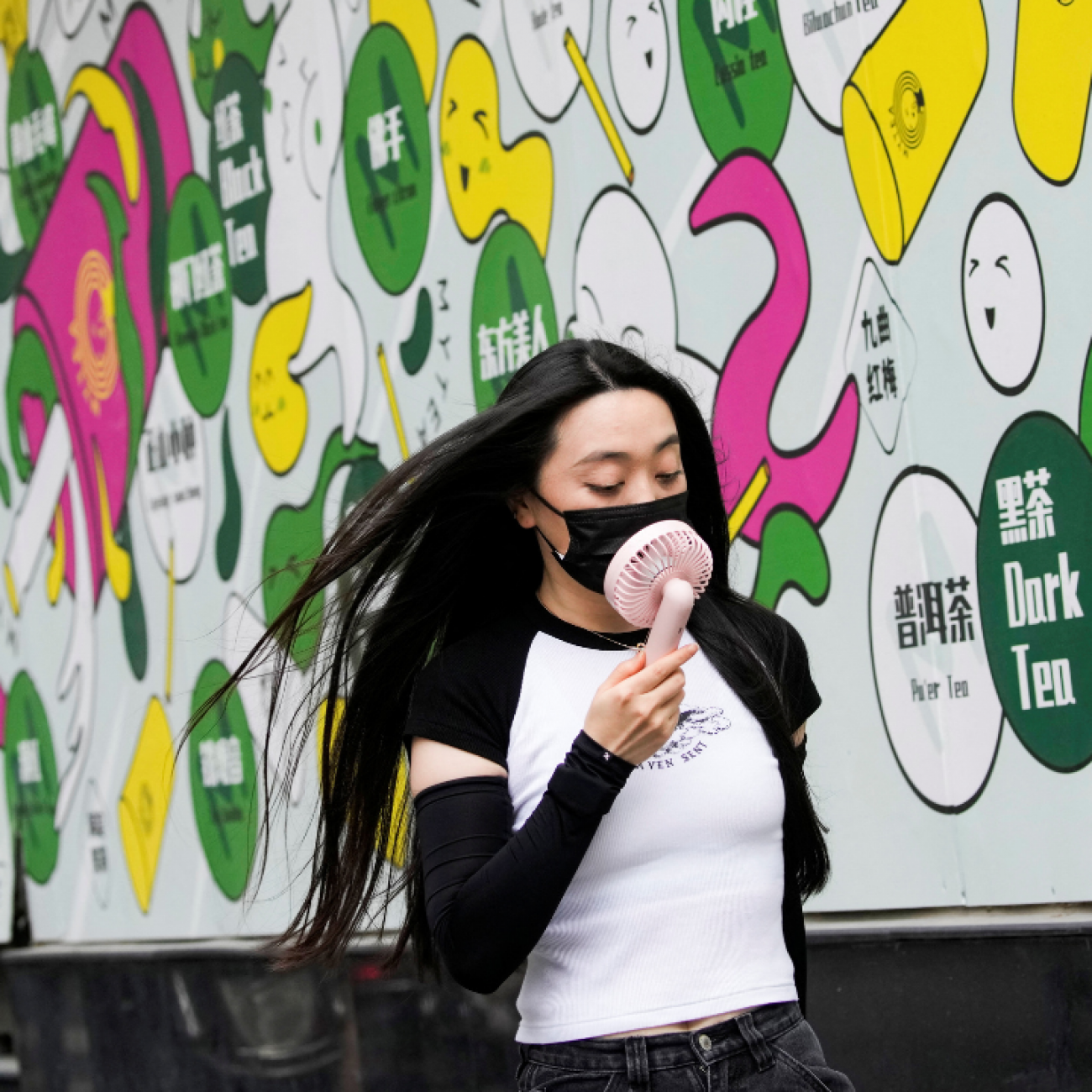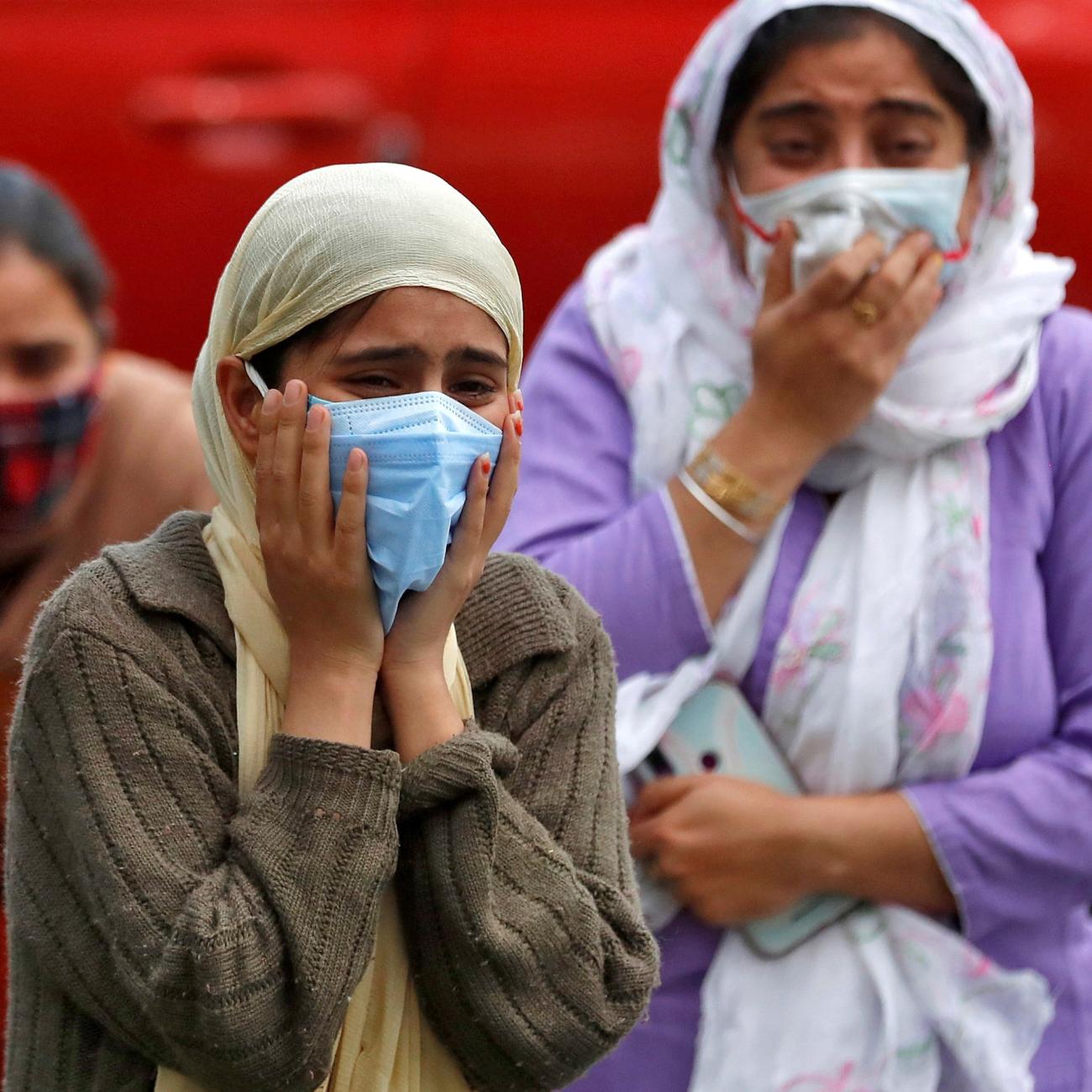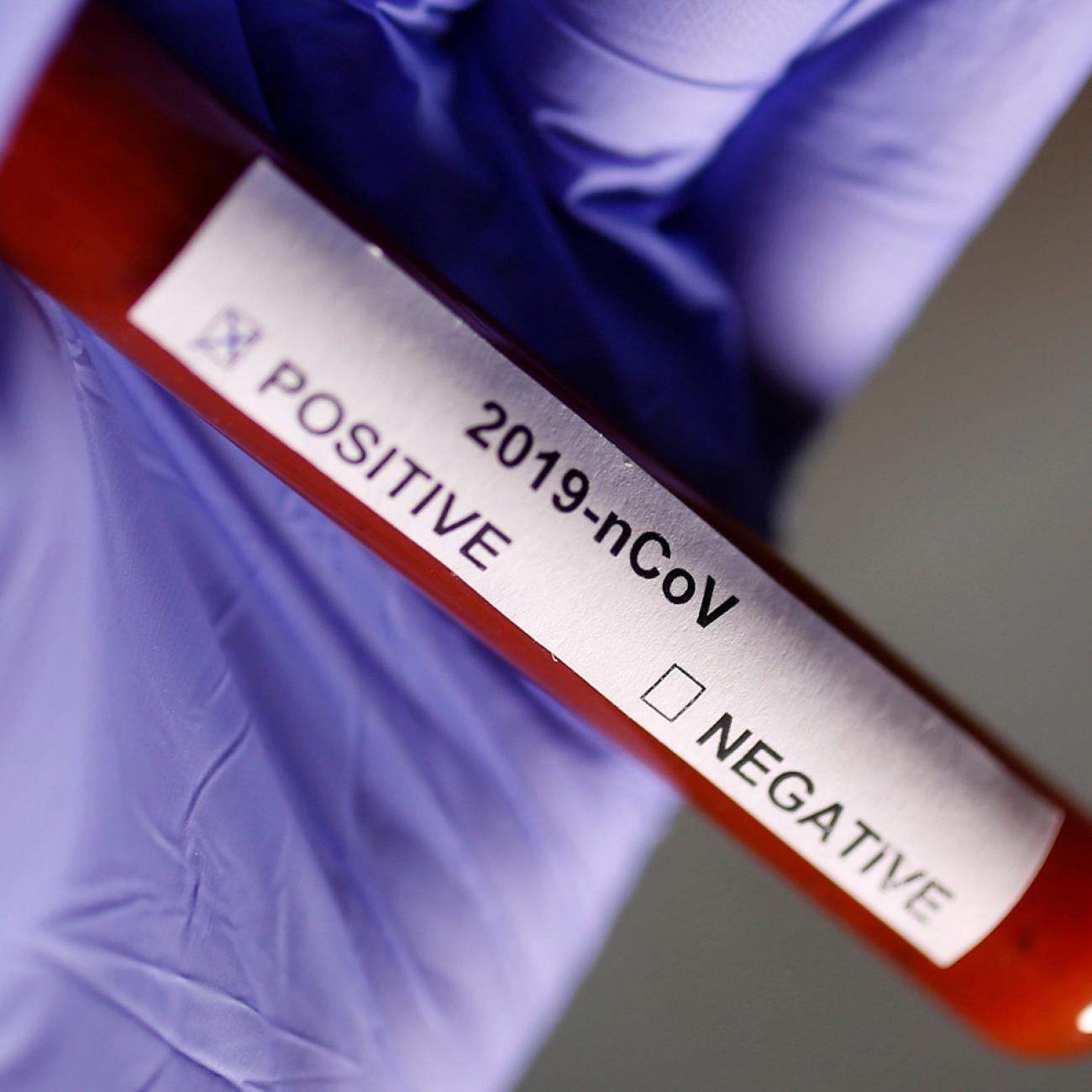With warnings of a “tripledemic”—COVID-19, flu, and RSV—coming to the United States this winter, we talked with our Institute for Health Metrics and Evaluation (IHME) colleague Ali H. Mokdad to learn more about what to expect in the frosty months ahead. And if the triple virus threat is a worry for other regions of the world. The chief strategy officer for population health at the University of Washington in Seattle, and professor of health metrics sciences at IHME, shared his insights.
□ □ □ □ □ □ □ □ □ □ □ □ □ □ □
Think Global Health: In the United States, we keep hearing about a "tripledemic" coming. What does that mean and is it already here?
Ali H. Mokdad: We’re seeing the early signs of it. Flu season is definitely much earlier this year and RSV [respiratory syncytial virus] is here. And many hospitals are still at their breaking point due to COVID.
Think Global Health: When experts say flu "is here," where is it coming from and how does it travel? Can you give a quick synopsis about how flu moves across the globe?
Ali H. Mokdad: It depends on how you look at it, but usually flu season is in winter. So, in the southern hemisphere—in Australia and New Zealand, for example—flu happens there during their winter [June, July, and August] and our summer. We have our flu season during our winter [December, January, February], when they are having their summer season.
In the southern hemisphere, the flu season came earlier, peaked much faster, and the total number of cases was much lower than previous years
So, right now in the southern hemisphere, the flu season came earlier, peaked much faster, and the total number of cases was much lower than previous years. That put a lot of pressure on medical systems due to the sheer number that happened in a short time. But the [overall] number of hospitalizations was much lower than previous years. It's yet to be seen in the United States if the same scenario will happen here.
We’re monitoring the UK right now and we are seeing the same signs in Europe. The UK is three to four weeks ahead of us. But even in the United States right now, we're seeing the flu season much earlier, even here in Seattle, where flu season is usually late.
Think Global Health: How about RSV patterns?
Ali H. Mokdad: In the United States, we are also seeing a rise in RSV—a lot of kids with it. RSV is spreading simply because our kids were protected during COVID-19. They haven't been exposed to any of these viruses until now with the return to school and daycare in the U.S. and many parts of the world. And it's dangerous—especially if a child is under two years old.
The triple season—and how bad it will or will not be—will be determined by how much flu and RSV we have circulating while we still are dealing with the pandemic. This "tripledemic" will put a lot of pressure on our medical system, especially if it comes earlier and much faster.
Think Global Health: What do you recommend to avoid illness this winter?
Ali H. Mokdad: Get your flu shot and COVID-19 booster. Wear a mask when you are indoors and when you cannot keep a safe distance from people. In my office right now, I don't wear a mask when I go to the kitchen because there are very few people here, but for larger gatherings, I put my mask on.
And now we're entering into the winter season, holiday occasion season, travel season in the United States. This is about population health—it takes a village. It is very important to remember your own risks but also those of others. If you are healthy and young and you have had the vaccine and you have had COVID infection, you may feel safe and nothing may happen to you, but you need to keep in mind that you are interacting sometimes with people at work and other places with medical conditions. You need to take that into consideration. It is not about you. It's about the people around you.

Think Global Health: Will there be vaccine equity issues this year with flu vaccines, like what we saw with COVID-19 vaccines earlier in the pandemic?
Ali H. Mokdad: Unfortunately, the amount of flu vaccine is much less than we produced for COVID. There are always equity issues with flu vaccines. In Lebanon for example, where I am originally from, they don’t get much flu vaccine and only very few people go and get it because it's expensive or not covered by insurance.
[With COVID] there was vaccine inequity early on in the pandemic—it was very high. That has changed. Right now, only 3 to 5 percent of people globally who want the COVID-19 vaccine can't get one. We have not solved all of the equity issues with COVID-19, but people who want a vaccine now are able to get one, including in Africa. That number is a function of vaccine availability and people willing to take the COVID-19 vaccine. I'm also half Yemeni, and many people in Yemen refuse to take the COVID-19 vaccine, but it's also not available.
Think Global Health: What about equity when it comes to getting Paxlovid—the oral antiviral for COVID?
Ali H. Mokdad: The equity issues surrounding Paxlovid and antivirals—now that's a totally different story. It's a big problem globally because it is not available and it is expensive. It is not available in many poor countries, and for many people in Africa. It is not available in Lebanon, for example. People try to get it for their families. Even rich people in Lebanon can’t afford it because it is thousands of dollars. Here in the United States, if you're diagnosed it is very easy to get it.
Think Global Health: Is it a patent issue?
Ali H. Mokdad: It's not. But even if they get a patent tomorrow and learn exactly how antiviral medication or the COVID-19 vaccine is designed, many countries are not able to produce them. The technology and infrastructure are not there.
The Pasteur Institute in Tunisia is working on making vaccines for countries in Africa, but by the time it’s ready, I think we will be past COVID-19. The message here is yes, there are efforts and we are moving in the right direction and the global community is there—slow but there. But we need to plan for next wave or global pandemic that will affect humanity and to build that infrastructure rather than reacting and being in the position where we're trying to catch up again.
This is about population health—it takes a village
The infrastructure for building a vaccine or drug should be invested in right now. We need to have it in Nigeria, in South Africa, we need it in Egypt—in many countries—where we can automatically produce a drug or vaccine of high quality and make sure everyone receives it. A medication that me and you and people in the United States are willing to take. The best way to do it is for some of us to show up in countries and roll up our sleeves and get vaccinated.
Think Global Health: So, fighting future pandemics is about building infrastructure now.
Ali H. Mokdad: And maintenance of the labs we set up. And training people who are in countries with new infrastructure. In many parts of the world—in my career at CDC, and now here at IHME—when we go to countries to help set up labs, the maintenance component is lacking. In our country, we change things every three years. Here at IHME, we change a lot of the equipment when it gets outdated. All these logistics need to be addressed. When labs and infrastructure are built, sometimes the thought is, okay, we are finished. But you need to maintain it, and train people there to maintain it.
Think Global Health: A quick backtrack to the "tripledemic" question. Did people in Africa experience it?
Ali H. Mokdad: Not really. Flu season is over there in the southern part, but the pandemic is still happening. Honestly, with the Russian war in Ukraine and inflation, many people are struggling with their daily income. Poor countries are struggling. I was in Lebanon recently, and people are so concerned about putting food on their table and nothing else right now.
Think Global Health: Do you anticipate any changes with the monkeypox and Ebola outbreaks in the coming months?
Ali H. Mokdad: Monkeypox and Ebola are diseases that are endemic in certain countries in Africa. There is not the possibility for a pandemic to happen with these two diseases due to the way they spread. When you look at monkeypox, it started to spread in Europe and other countries it is not usually in—mostly among men having sex with men—because at the time, clinicians did not realize it was monkeypox that they were looking at. So, there was a delay in the preventive measures to prevent and control its spread, that is why we saw a rapid rise in cases. I’m not worried about these two becoming a pandemic.
But the hope there—from someone in population health who believes in social justice—I hope the pandemic will energize the international community to deal with these two diseases and help African countries and the global health community to deal with them.
It is time to look at African countries and at some of the medical conditions and diseases that happen there and stop thinking it will never come here to the U.S. It's in my best interest as a U.S. citizen and public health professional in the United States—and in my national best interest—to catch it, whatever it is. Deal with it wherever it is before it comes to the U.S. In order to do this, we must help other countries establish labs, help with the ability for surveillance, and to analyze, and help with their ability to respond.







